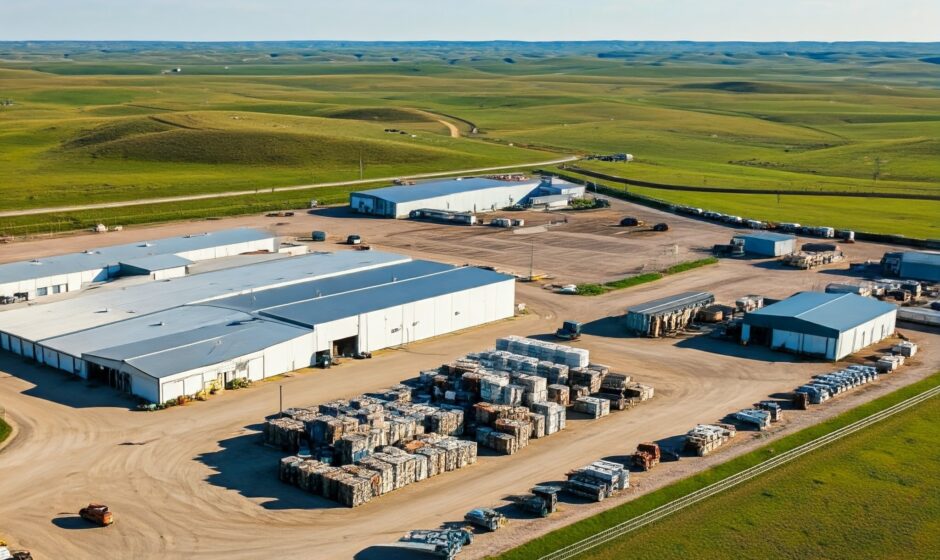With an increasing focus on environmental sustainability, recycling has become an essential practice for individuals and communities alike. In Kansas, various recycling centers provide services for residents to safely and responsibly dispose of materials like plastics, metals, electronics, and even hazardous waste. Whether you’re looking to reduce household waste, get rid of old electronics, or recycle industrial materials, Kansas offers several options. Here’s a comprehensive guide to finding and using a recycling center in Kansas, including what to recycle, why it matters, and how to make the most of the services available.
Why Recycling Matters in Kansas
Recycling conserves natural resources, reduces landfill waste, and decreases pollution. In Kansas, where agriculture and manufacturing are integral parts of the economy, effective recycling also helps minimize industrial impact on the environment. By recycling, residents play an active role in reducing their carbon footprint and supporting a healthier environment for future generations.
Environmental Impact
Every item that is recycled helps save energy and reduces the demand for raw materials. For example, recycling paper reduces the need to cut down trees, and recycling metals saves significant amounts of energy compared to extracting raw ores. With widespread recycling, Kansas communities can preserve the natural landscape and decrease waste in local landfills.
Economic Benefits
Recycling is also beneficial to Kansas’s economy. Recycling centers generate jobs in waste management and processing, and many recycled materials, like aluminum and cardboard, hold value in secondary markets. Supporting local recycling centers can contribute to Kansas’s economy while promoting environmentally friendly practices.
Types of Recycling Centers in Kansas
1. Municipal Recycling Centers
Most cities and towns in Kansas have local recycling facilities operated by municipal governments. These centers are typically convenient and easy to access, offering recycling for common household items like paper, cardboard, plastics, and glass. Many of these centers are free for residents and accept a variety of materials, making them a practical choice for routine recycling.
2. Specialized Recycling Centers
Some items require special handling, such as electronics, batteries, and hazardous materials. In Kansas, specialized recycling centers accept items that regular facilities may not, including e-waste (old computers, cell phones), automotive batteries, and hazardous chemicals like pesticides and paint. These facilities ensure that potentially harmful materials are safely processed and recycled, keeping them out of landfills and preventing contamination.
3. Private Recycling Companies
In addition to government-run facilities, private companies in Kansas offer recycling services, often with options for pick-up or drop-off. Private centers may charge a fee for specific materials but provide a broader range of recycling options, including scrap metal, large appliances, and construction materials. Some companies even offer incentives, such as paying for metals or reusable electronics.
What You Can Recycle in Kansas
1. Paper and Cardboard
Recycling paper and cardboard is one of the easiest ways to reduce waste. Newspapers, office paper, and cardboard boxes are commonly accepted at most Kansas recycling centers. Make sure paper products are clean and free from food residue to prevent contamination.
2. Plastics
Kansas recycling centers typically accept various types of plastics, particularly those labeled with recycling symbols 1 and 2 (PET and HDPE). These include plastic bottles, containers, and some packaging materials. Not all plastics are recyclable, so check with your local center to determine what types are accepted.
3. Glass
Many centers accept glass bottles and jars, though some may require you to separate clear glass from colored glass. Glass recycling is essential, as it’s infinitely recyclable and conserves natural resources. However, note that items like windows and mirrors may need to be taken to specialized facilities.
4. Metals
Metals, including aluminum cans and steel, are widely accepted and often have a resale value. Recycling aluminum is especially beneficial, as it saves 95% of the energy needed to produce new aluminum from raw materials. Some centers also accept scrap metal from appliances, bikes, and construction materials.
5. Electronics
Electronic waste, or e-waste, is a growing concern. Items like computers, cell phones, and TVs contain valuable metals and other components that can be reused. Specialized e-waste recycling centers in Kansas help prevent harmful chemicals from polluting the environment while allowing these materials to be repurposed.
6. Hazardous Materials
Hazardous items, such as batteries, paint, and certain chemicals, should never be thrown in regular trash. Kansas has several hazardous waste facilities that handle these items, ensuring they are processed safely. Check with your local center to see if it accepts these materials or if they can refer you to a specialized facility.
Top Recycling Centers in Kansas
1. Johnson County Household Hazardous Waste Facility – Olathe, KS
Located in Olathe, this center offers comprehensive recycling for hazardous household waste. It accepts materials like paint, automotive products, and pesticides, keeping harmful substances out of the environment. Appointments are usually required, so check the facility’s website for scheduling.
2. Wichita Recycling Centers
Wichita offers several recycling centers, including both municipal and specialized facilities. The city’s Brooks Landfill Recycling Center accepts various household recyclables, while companies like Waste Connections offer additional services for residents and businesses alike.
3. Lawrence’s Wal-Mart Community Recycling Center
This community center accepts a range of household items, including plastics, glass, and metals. Lawrence also has a strong network of recycling programs, making it easy for residents to participate in sustainable practices.
4. Kansas City, KS – KC Can & Bottle
KC Can & Bottle focuses on aluminum and other metals, offering payment for cans and certain other metals. This center is a popular option for Kansas City residents who want to recycle and earn a bit of extra cash in the process.
5. Topeka’s Shawnee County Recycling Center
Shawnee County Recycling Center in Topeka accepts many household items and operates as a convenient drop-off location for the local community. It also provides resources on recycling options for hard-to-dispose-of items.
Tips for Using a Recycling Center in Kansas
1. Sort Your Items
Many recycling centers require items to be sorted by type. Separate your recyclables in advance—plastics, metals, paper, and glass—to make the drop-off process smoother.
2. Check for Fees
While many recycling services are free, some centers may charge fees for specific items like electronics or hazardous waste. It’s a good idea to contact the center beforehand to understand any potential costs.
3. Clean Your Recyclables
Remove food residue from items, rinse containers, and flatten cardboard boxes before dropping them off. Clean items are easier to process and help reduce contamination in recycling streams.
4. Know What Your Center Accepts
Each center has its own list of accepted materials, so double-check to ensure you’re bringing the correct items. This prevents accidental contamination and helps the center run more efficiently.
5. Use Collection Programs When Available
Kansas cities often offer curbside or local collection events for specific items, like electronics or bulky items. Keep an eye out for these events to recycle items that might be challenging to transport on your own.
6. Look for Drop-Off Events
Some items, especially hazardous or bulky items, may only be accepted during designated drop-off events. These are often announced by city governments or recycling centers, so check community calendars and city websites.
Mail in Program
Conclusion
Recycling in Kansas is both accessible and beneficial, with numerous centers across the state that handle a wide range of materials. From basic household recyclables to specialized e-waste and hazardous materials, Kansas recycling centers provide an essential service that helps protect the environment, conserve resources, and support local economies. By following a few simple tips and knowing what your local center accepts, you can make a positive impact through responsible recycling. Whether you’re looking to reduce your carbon footprint or safely dispose of hazardous items, Kansas has the recycling resources you need.




